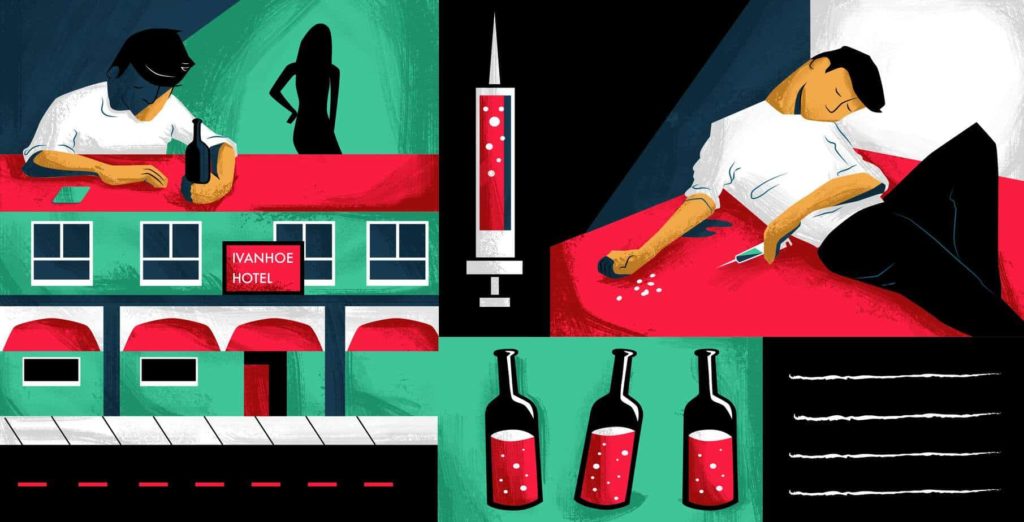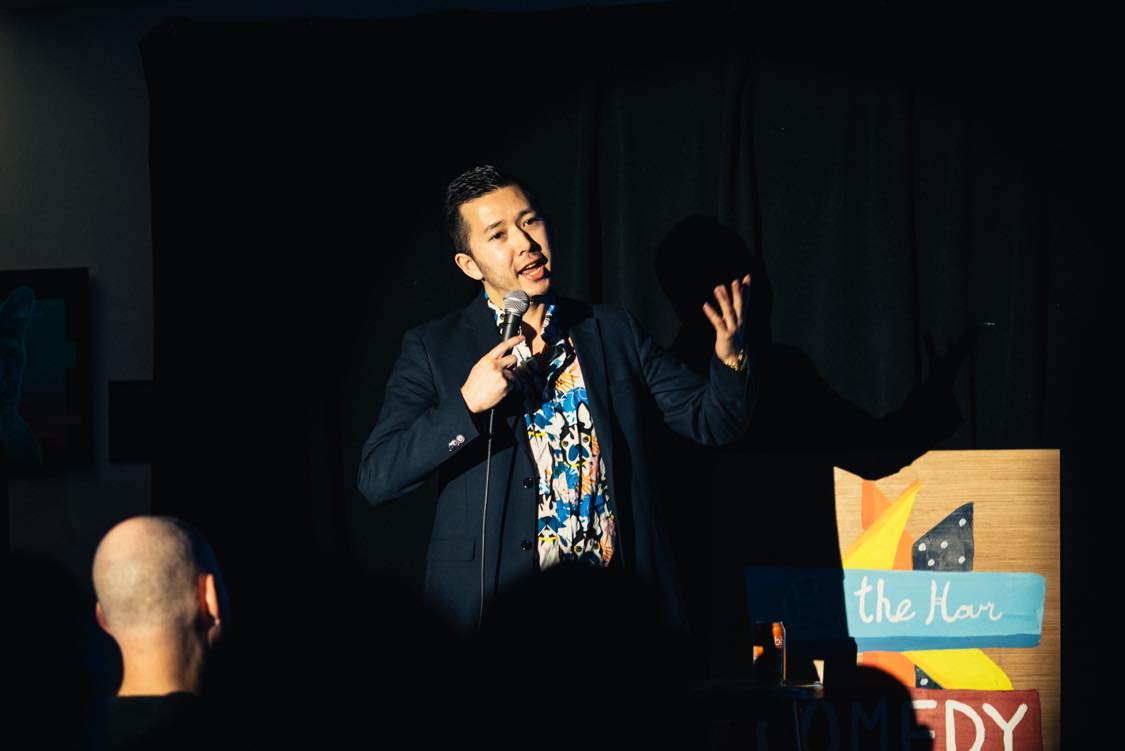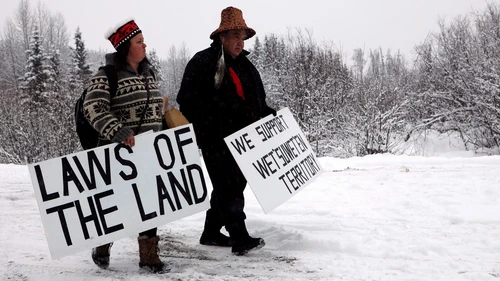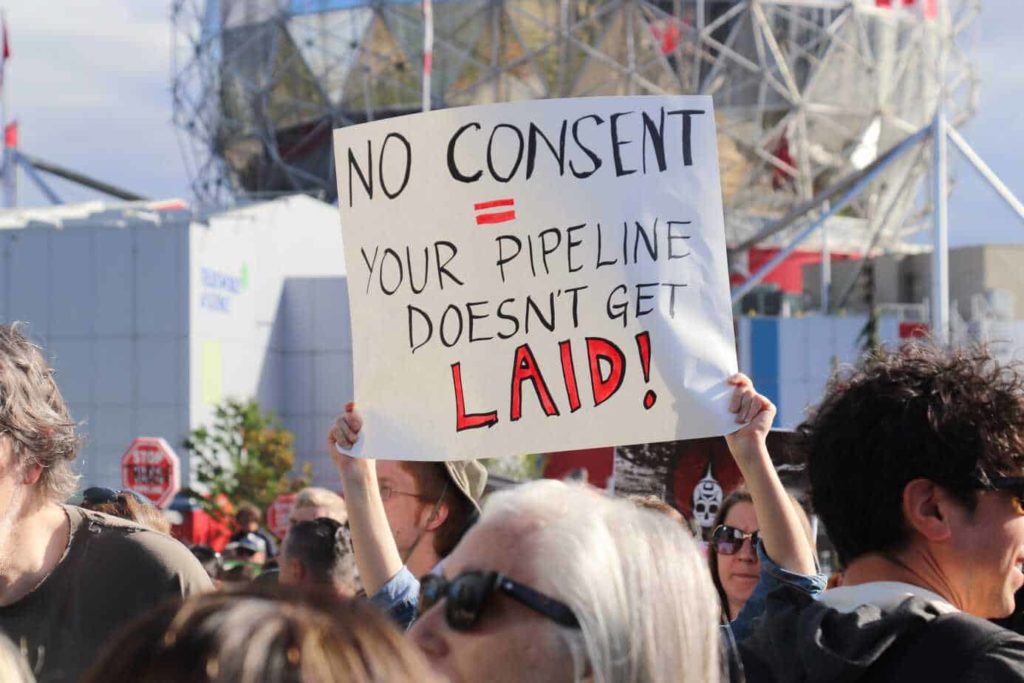January 31, 1998: A dingy wet blanket of a sky had been thrown over Vancouver’s Downtown Eastside. My father, Ronald “Kenny” Jang, closed the kitchen at the Ivanhoe, the dive bar where he worked. I imagine he wiped down the counters. He flicked off the lights. He locked the door behind him. He walked into the bar – I know that, too, was part of his routine. He was 33 years old. I was five.
He would have grabbed a beer – about $2 back then – and sat at one of several dimly lit tables where he joined his friends. He had plans for the night. To go to a play with Christine, my mother. The play was called Only Drunks and Children Tell the Truth. The play was her idea. She bought the tickets after he told her he wanted to go. They were married, but separated. Trying to work it out. She was at home, an hour’s drive away in Abbotsford, getting ready to go out. Getting ready to give him another chance. She was waiting for him to come home. He spent a lot of his life being late.
His sister Jenn walked into the bar looking for him. This, too, happened a lot. She was a decade younger than he was. She gave him the look she always gave him when she was out looking for him. It was the look their mother gave him growing up. It was time for him to go. He finished the beer. He left the table and went up to his sister. “Please, please, please, just let me stay,” he said. Jenn shook him off. She knew her brother too well. He was about to get into trouble.
But he kept at it. “Jenn, I promise I’ll be home after. I promise. I promise I’m going to be good.” She wanted to believe him. She wanted him to have a good time. And, to his credit, he had been good for several months. He seemed to be getting better.
And so she said, “Okay, fine. But make sure you call me if you need a ride home.”
My father hugged her. Then he must have bought another beer. Time disappeared. You know the way time can disappear when you’re trying to make it disappear. It disappeared seemingly along with the thought of driving out to Abbotsford and sitting through a play. Eventually, somebody must have suggested cocaine. Maybe it was him. He got up with the group and headed out the door to a random house party. Time was moving faster. Or slower. Or both.
Before anyone knew it, the party was over. His friends must have left. He stayed behind. He was alone now. He grabbed a syringe and the blow and I imagine stumbled into the bathroom. He’d done this before. He’d bailed on the play. He injected into his right arm, an instant euphoria cleansing his guilt, the way coke does. But the euphoria must have been replaced by panic. Something was different. Something was wrong. This wasn’t just cocaine. It was cocaine and heroin.
My father collapsed onto the bathroom floor. His body likely would have been shaking, mouth foaming. Then his heart stopped. To this day I wonder what he was thinking in those moments before he died. I wonder if his last thought was my mom, or my little sister or maybe me. I wonder about the path his life took that led him to that night. I wonder how much of that path can fairly be called his fault. And I wonder if he had any idea it was a path I’d retrace.
Children of addicts are twice as likely to develop substance abuse issues as our peers. The moment my father’s heart stopped, I also became more likely to grow up with a mental illness. One in five children who experience the early death of a parent are likely to develop a psychiatric disorder. So am I doomed to repeat my father’s mistakes and ultimately meet the same fate? Or are there ways for me and kids like me to re-write our stories?
It wasn’t more than a few years ago when I wasn’t so sure. I’ve struggled with depression, substance abuse and this lingering thought in the back of my mind that I’m destined to end up like my father. It’s been a hard struggle, but hardly a unique one. There could be 1,500 drug overdose deaths in British Columbia alone by the end of 2017, after a record 978 deaths in the province last year. I wonder how many of those drug users left kids behind?
Consider this a sign of what may or may not lie ahead for the kids of Canada’s opioid overdose crisis. My father died at the height of Vancouver’s last drug crisis, when crack cocaine usage spiked in the city’s Downtown Eastside in the 1990s. My father was one of 417 overdose deaths in B.C. in 1998, which, at the time, was the highest annual death toll from drugs in the province’s recorded history. But by today’s standards, getting that number back down to 417 would be a miracle.
My father never wanted me to follow his path. He wanted me to learn from it instead. So I feel it’s important for me to share both of our stories so that maybe others can learn from what we’ve been through.
Read the rest of this feature story on The Discourse.



